Have you ever stared into your cat’s soulful eyes and wondered what’s really going on inside? Cats can be mysterious creatures, often hiding their true feelings behind a cool stare or an elegant stretch. As cat lovers, we wish our cats could just tell us when they’re happy, secure, or upset. The truth is, cats do communicate—just not in ways we always expect! Understanding if your cat is emotionally grounded isn’t just about picking up on the obvious purrs and cuddles; it’s about noticing the quieter, subtler signs that reveal your feline’s inner world. Let’s dive deep into the fascinating ways cats show us they feel safe, secure, and truly at home.
Relaxed Body Posture

A cat that is emotionally grounded will often be seen lounging with their body stretched out, paws tucked under, or lying on their back. These relaxed positions suggest your cat feels no immediate threat in their environment. If your cat’s muscles appear loose rather than tense, it’s a good sign they’re content. Watch their tail as well; a gently swaying or still tail, instead of one that’s puffed up or flicking rapidly, points to emotional comfort. Cats who sprawl out in the open rather than hiding away are showing trust in their surroundings. You may notice their ears are upright but not stiff, showing openness rather than anxiety. A soft, slow blink or half-closed eyes are the ultimate cat compliment—they’re telling you they feel safe.
Steady Appetite and Eating Habits

Emotionally grounded cats eat regularly and don’t shy away from their food. Skipping meals or eating less can be a sign of stress or discomfort. If your cat greets you in the kitchen or comes running at the familiar sound of the food bag, you’re witnessing a confident eater. Cats who eat slowly and savor their food, rather than gobbling it down or walking away, are usually feeling secure. Playful behavior around mealtimes, like “hunting” for treats or pouncing on kibble, is another good sign. If your cat eats in the open rather than hiding, they’re comfortable in their environment. Consistent hydration and regular use of their water bowl further reinforce emotional stability.
Healthy Grooming Habits

Cats are meticulous groomers, and a well-groomed coat is a sign of emotional grounding. Over-grooming or a disheveled appearance can signal anxiety or health issues. If your cat spends time cleaning themselves after meals or during quiet moments, it shows they feel secure enough to focus on self-care. Social grooming—when your cat licks you or another pet—is a sign of affection and emotional contentment. Cats who confidently groom in front of people or in high-traffic areas of the house are showing trust. A shiny, clean coat reflects both good health and a calm mind. Watch for bald patches or excessive licking, as these can be signs your cat is not emotionally grounded.
Curiosity and Playfulness

An emotionally grounded cat is curious and playful, exploring their environment with enthusiasm. If your cat chases shadows, bats at toys, or investigates new objects, they’re mentally stable and engaged. Play is a sign that your cat feels safe enough to let their guard down. Cats who initiate play—by bringing you toys or playfully pouncing—are showing confidence. Even older cats may exhibit playful moments if they’re feeling secure. Curiosity about new visitors or changes in the home, rather than fear or avoidance, points to a grounded cat. When your cat shows interest in their surroundings, it means their emotional needs are well met.
Confident Social Interactions

Cats who are emotionally grounded will approach people and other pets with confidence. You may notice your cat rubbing against your legs, head-butting you, or weaving between your feet—these are friendly greetings and displays of trust. A cat who willingly joins family activities or sits on your lap feels at ease. Friendly vocalizations, like soft meows or chirps, show your cat is comfortable communicating. If your cat tolerates gentle petting, grooming, or being picked up, it signals emotional security. Cats who initiate contact, rather than always hiding or avoiding touch, are feeling grounded. Even if your cat is shy, slow but steady attempts to interact show growing comfort.
Comfortable Sleeping Locations

Where your cat chooses to sleep tells a lot about their emotional state. Cats who sleep in open, visible areas are confident and feel safe. If your cat curls up on the couch, bed, or even next to you, it’s a sign they trust their environment. Emotionally grounded cats may also sleep with their belly exposed—an incredibly vulnerable position. Cats who rotate sleeping spots are exploring and feel secure in various parts of your home. Watch for cats who hide to sleep; this could indicate anxiety or stress. Frequent naps throughout the day are normal, but hiding away constantly may be a red flag. Cats that sleep near you or other pets are seeking comfort and connection.
Normal Litter Box Behavior

Using the litter box consistently is a hallmark of an emotionally stable cat. Avoiding or missing the box may signal emotional upheaval or health problems. If your cat is comfortable using their litter box even when people are nearby, it shows trust in their environment. A clean litter box and regular cleaning can help your cat feel more secure. Watch for changes in urination or defecation patterns, as these can indicate stress or discomfort. Scratching around the litter and covering waste are normal, grounded behaviors. If your cat starts eliminating outside the box, it’s important to consider both emotional and physical causes.
Soft Vocalizations and Communication

Cats use their voices to express how they feel, and emotionally grounded cats tend to use soft, gentle sounds. Purring is often a sign of contentment, especially if paired with relaxed body language. Chirps, trills, and quiet meows are friendly greetings or invitations for attention. Cats who vocalize for food or play are comfortable expressing their needs. Excessive yowling or aggressive noises, however, can indicate distress. Listen for happy chatter when your cat spots a bird outside the window—this curiosity is a positive sign. Responding to your voice or name shows your cat feels connected and secure with you.
Balanced Energy Levels

An emotionally grounded cat will show a healthy balance between active and restful periods. Bursts of play followed by long naps are normal and healthy. Cats who are always hiding or lethargic may be feeling anxious or unwell. Overly hyper or destructive behavior can also be a sign of emotional instability. If your cat follows a routine—playing, eating, sleeping—it’s a sign of comfort and confidence. Cats who adapt to changes in schedule or environment with minimal stress are emotionally resilient. Watch for sudden changes in energy, as these can indicate an underlying emotional or physical issue.
Gentle Facial Expressions

The face says it all! Cats who feel emotionally grounded have soft, relaxed features. Their whiskers are gently fanned out, not pulled back against their face. Ears are in a natural, forward-facing position rather than flat or swiveling. Watch for slow blinks—cats do this as a sign of trust, almost like a kitty kiss. Eyes that are half-closed or gently blinking show your cat feels safe. A tense or wide-eyed stare can indicate fear or stress. If your cat looks at you with a calm, open expression, it’s a sign of true emotional grounding.
Willingness to Be Alone

Emotionally secure cats are comfortable being alone for periods of time. They don’t become destructive or overly vocal when left by themselves. Your cat might nap, explore, or simply relax while you’re away. If they greet you calmly upon your return, instead of acting frantic, it shows emotional stability. Cats who can self-soothe with a favorite toy or blanket are confident in their independence. Separation anxiety, marked by excessive meowing or destructive behavior, may mean your cat isn’t fully grounded. A calm, independent cat trusts their environment and knows you’ll return.
Interest in the Outdoors (Even from Indoors)
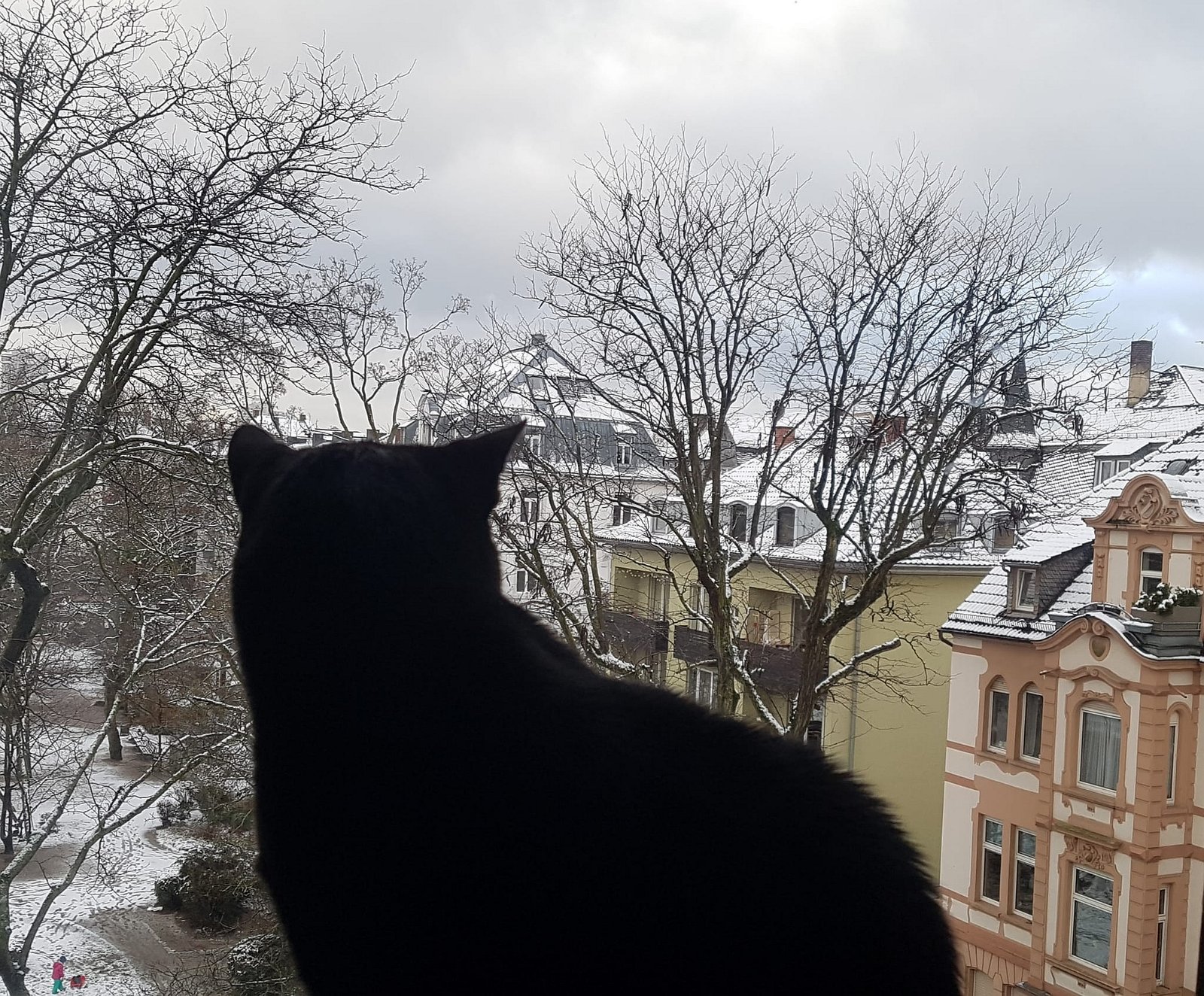
A grounded cat shows curiosity about the world, even if it’s just through a window. Watching birds, squirrels, or even falling leaves can captivate your cat for hours. This type of interest signals mental stimulation and a lack of fear. Some cats may safely explore a secure yard or catio, while others are content to observe from inside. If your cat sits by the window, chirping or watching the world go by, it’s a sign of confidence. Cats who hide from outdoor noises or people passing by may feel less secure. A healthy interest in the outside world means your cat feels safe in their home base.
Minimal Hiding Behavior
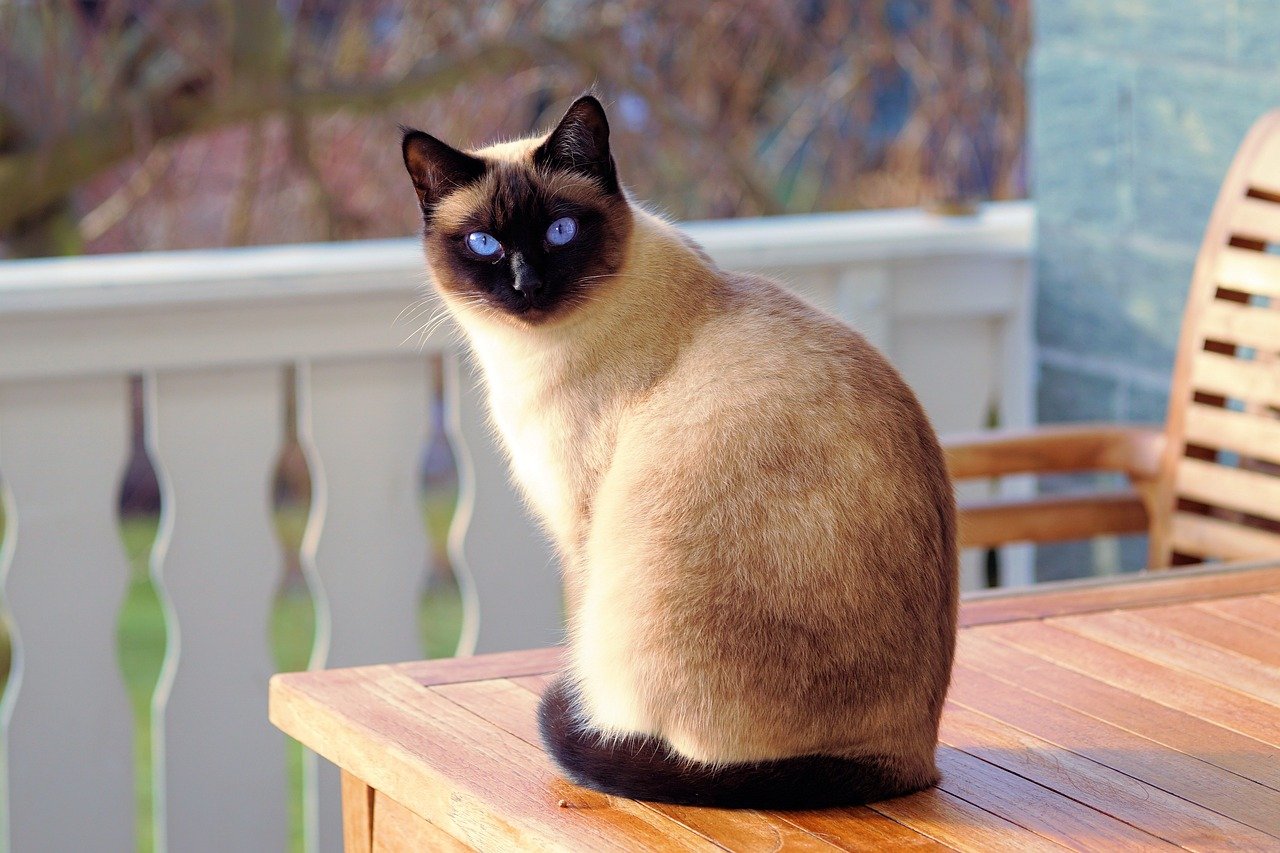
While it’s normal for cats to seek quiet spots now and then, constant hiding can be a sign of emotional distress. Grounded cats are comfortable being visible, even during noisy or active times. If your cat only hides during thunderstorms or when guests arrive, that’s normal. But if they spend most of their time under the bed or in closets, it may be a red flag. Cats who emerge quickly from their hiding spots when called are showing trust. Providing safe spaces for your cat is important, but they should also feel confident enough to explore openly. A cat who balances alone time with social time is emotionally well-adjusted.
Playful Socialization With Other Pets
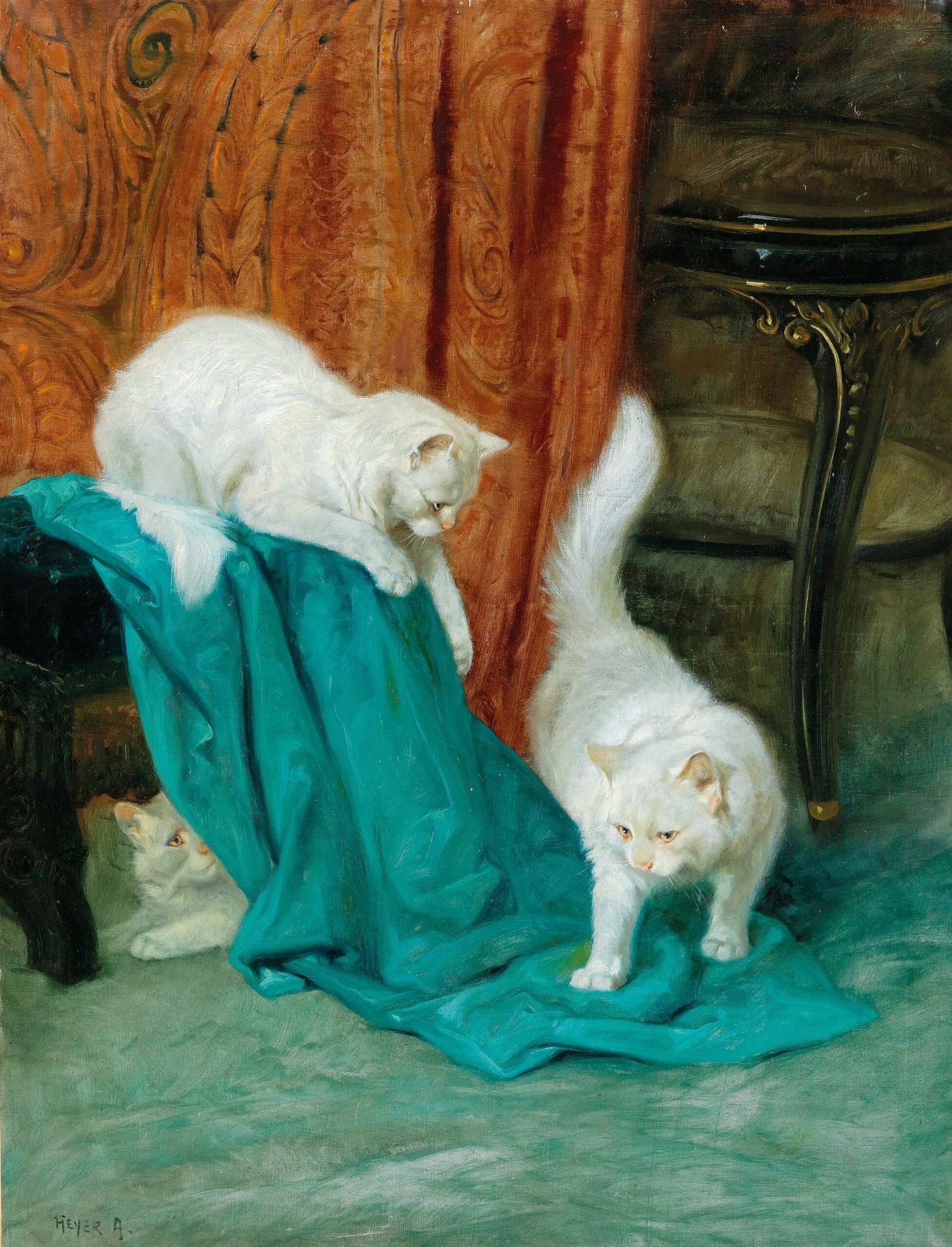
If you have more than one pet, watch how your cat interacts with them. Grounded cats may play, groom, or nap alongside other animals. Friendly chases, gentle wrestling, or mutual grooming are signs of social comfort. Cats who hiss, growl, or avoid other pets may feel insecure or threatened. Gradual, positive introductions can help build confidence. Over time, emotionally stable cats will seek out the company of trusted animal friends. Jealous or possessive behaviors are less common in cats who feel emotionally grounded. Peaceful cohabitation is a good indicator your cat feels at home.
Receptivity to Training and Enrichment

Emotionally grounded cats are more likely to respond well to gentle training and enrichment activities. Whether it’s learning to use a scratching post or enjoying puzzle feeders, these cats engage with new experiences. They may pick up tricks, use interactive toys, or even walk on a leash if introduced slowly. Positive reinforcement, like treats or praise, encourages their confidence. Cats who are fearful or uninterested in enrichment might need more time to feel secure. Introducing new games or routines can help boost emotional well-being. A cat who is eager to learn and try new things is showing strong emotional grounding.
Routine Seeking and Adaptability

Cats love routine, and emotionally grounded cats thrive on predictability. They may wait by the door for you at the same time each day or expect meals on schedule. But they’re also able to adapt to small changes without major distress. Moving furniture, adding a new pet, or shifting feeding times may cause curiosity but not panic. Cats who protest any change with hiding, aggression, or loss of appetite may be less emotionally stable. A grounded cat can handle life’s little surprises with grace. Balancing routine with adaptability is a sign of a well-adjusted feline.
Healthy Coat and Skin
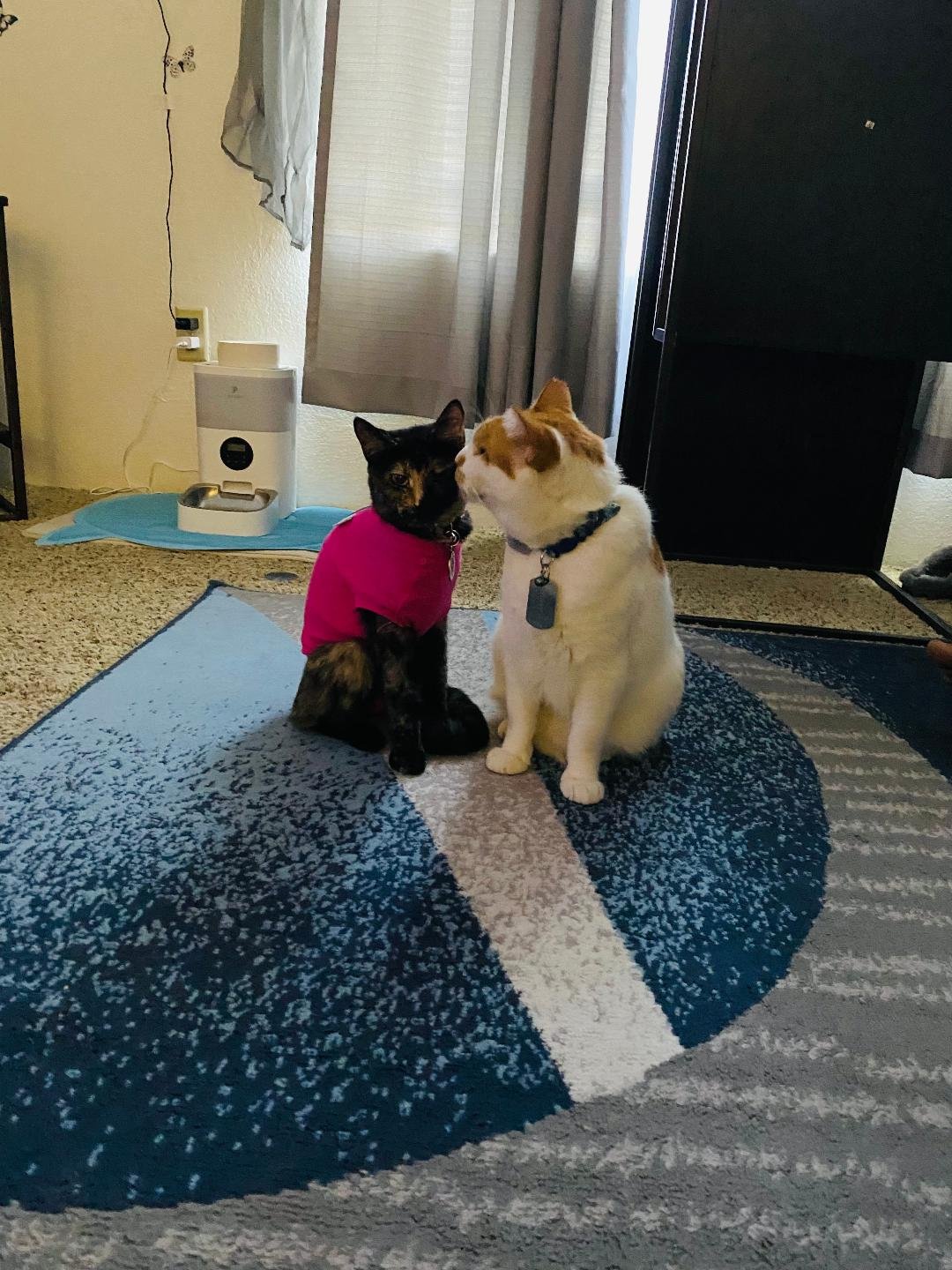
A cat’s physical health is deeply connected to their emotional well-being. Cats who are emotionally grounded maintain glossy coats and healthy skin. Over-grooming, bald spots, or sores may indicate stress or anxiety. A consistent grooming routine, combined with proper diet and hydration, reflects a happy mind. If your cat enjoys being brushed or petted, it’s a sign they associate touch with comfort. Flaky skin or dull fur can be a sign of emotional or physical health issues. Regular vet visits and attentive care help reinforce your cat’s sense of safety. A healthy, vibrant appearance usually means a calm, contented cat.
Positive Response to Your Presence

Grounded cats look forward to your company and may greet you at the door or follow you around the house. They may meow, rub against you, or hop onto your lap for snuggles. Cats who trust you will often sleep or relax nearby, even if not directly on you. They may “chat” with you using soft sounds or head butts. Cats who seem indifferent or avoidant may need more time to build emotional confidence. Mutual affection—whether it’s a gentle touch or shared playtime—reinforces your bond. When your cat comes to you for comfort or fun, you know they feel safe and loved.
Calm Reaction to Loud Noises

Sudden noises like vacuums, thunderstorms, or fireworks can startle any cat. But emotionally grounded cats recover quickly, returning to normal behavior once the moment passes. They may pause or hide briefly, then resume their activities without lingering fear. Cats who panic or stay hidden long after the noise ends may feel less secure. Providing a safe space helps, but so does gentle reassurance from you. Over time, emotionally stable cats learn that loud noises are temporary and not a threat. Their calmness under pressure is a testament to emotional grounding.
Willingness to Seek Comfort When Upset
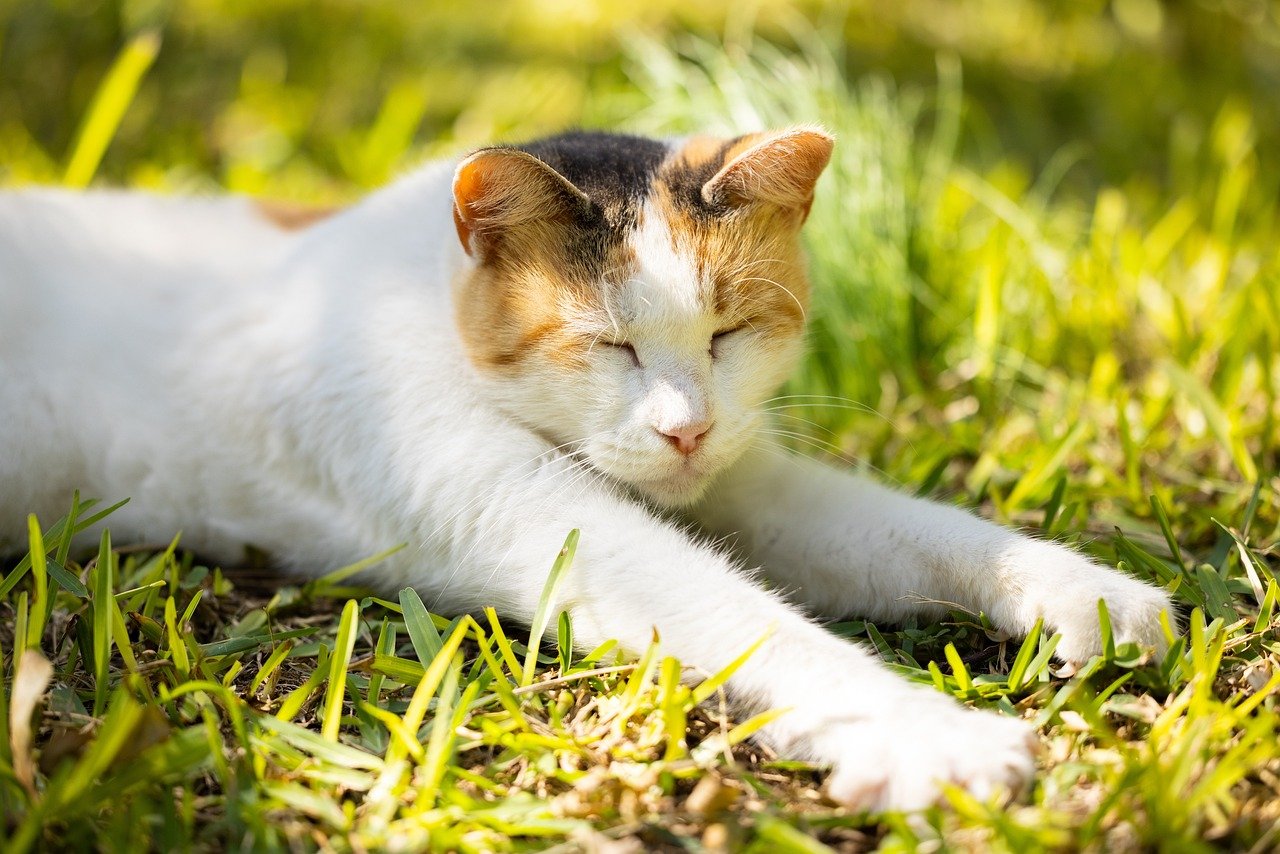
When something scares or upsets your cat, a grounded feline will often seek you out for comfort. They may snuggle close, knead your lap, or hide near your feet. This behavior shows trust and a strong emotional bond. Cats who hide for long periods or become aggressive when scared may not feel as secure. If your cat allows you to soothe them during storms or after a loud noise, it’s a good sign of emotional confidence. Gentle words and soft petting can help reinforce this trust. Over time, your cat will learn that you are their safe haven.
Normal Weight and Body Condition

A cat’s body condition often mirrors their emotional state. Overeating or undereating may signal stress, anxiety, or sadness. Emotionally grounded cats maintain a healthy weight, with no sudden changes in appetite. Regular meals, plenty of play, and a stable home environment all support this balance. If you notice weight gain or loss, it’s important to consider both physical and emotional causes. Monitoring your cat’s body condition helps you catch problems early. A fit, healthy cat is often a happy, emotionally stable one.
Consistent Daily Routines

Cats thrive on routine, and emotionally grounded cats follow daily patterns. Whether it’s a morning cuddle, midday nap, or evening play session, these routines offer comfort. Cats who know when to expect food, play, and quiet time feel more secure. Disruptions in routine can cause stress for some cats, but grounded felines adapt more easily. Observing your cat’s habits helps you recognize what makes them feel safe. Keeping to a gentle routine reinforces your cat’s sense of stability. A consistent daily rhythm is one of the clearest signs your cat feels emotionally grounded.
Hi, I’m Bola, a passionate writer and creative strategist with a knack for crafting compelling content that educates, inspires, and connects. Over the years, I’ve honed my skills across various writing fields, including content creation, copywriting, online course development, and video scriptwriting.
When I’m not at my desk, you’ll find me exploring new ideas, reading books, or brainstorming creative ways to solve challenges. I believe that words have the power to transform, and I’m here to help you leverage that power for success.
Thanks for stopping by, Keep coming to this website to checkout new articles form me. You’d always love it!






